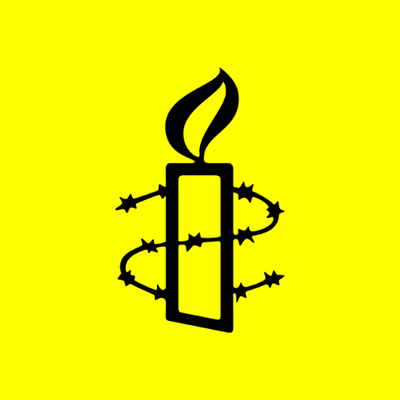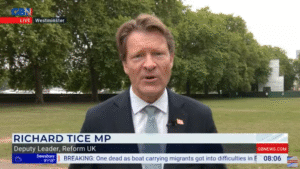FIFA should secure human rights protections for 2030 and 2034World Cups as bidding deadline passes

FIFA needs to secure clear and binding commitments to improve human rights in countries likely to host the 2030 and 2034 men’s football World Cup tournaments to prevent serious potential abuses linked to its flagship event, the Sport & Rights Alliance said today.
The warning from the Alliance comes as Saudi Arabia is the sole bidder to host the 2034 event shortly before deadline closes at midnight tonight, and a joint bid from Morocco, Portugal and Spain is the only one being considered for 2030. The coalition of human rights and anti-corruption organizations, trade unions, fans representatives, athlete survivors groups, and players unions believes the lack of competition to host the tournaments risks undermining FIFA’s leverage, and means it is crucial that football’s world governing body takes the lead and secures binding human rights guarantees from the bidders.
“With only a single bid for each tournament on the table, FIFA may have scored an own goal. FIFA must now make clear how it expects hosts to comply with its human rights policies. It must also be prepared to halt the bidding process if serious human rights risks are not credibly addressed,” said Steve Cockburn, Amnesty International’s Head of Economic and Social Justice.
“The best chance for FIFA to obtain binding guarantees to protect workers’ rights, ensure freedom of expression and prevent discrimination linked to the World Cup is during the host selection process – not after the hosts have been confirmed and tournament preparation has begun. Human rights commitments must be agreed with potential hosts before final decisions on holding the tournaments are made.”
The bidding process for the 2030 World Cup had been expected to be officially launched at a FIFA Council meeting in June, but was postponed to “ensure additional consultation with all key stakeholders.”
In a surprise move on 4 October, the FIFA Council announced that the only bid to be considered for the 2030 World Cup would be that of Morocco, Portugal and Spain – with a small number of games to be played in Argentina, Paraguay and Uruguay, which had previously announced their intention to bid to host the entire tournament.
At the same October meeting, FIFA also unexpectedly announced that the bidding process for the 2034 World Cup would begin immediately, with only bids from Asia and Oceania to be considered. With potential bidders given a deadline of just 27 days to declare their intention, only Saudi Arabia has done so.
“Given the enormous scale of the World Cup, there are far-reaching human rights risks to consider with all bids to host this tournament—as well as opportunities for change that should not be missed,” said Minky Worden, Director of Global Initiatives at Human Rights Watch. “FIFA’s human rights policy must not be reduced to a paper exercise when it comes to choosing the host of the world’s most watched sporting event.”
An opinion poll of over 17,000 adults in 15 countries published by Amnesty International in June showed that a majority of fans wanted human rights standards to be a key consideration when selecting the host of a major sports event such as the World Cup.
“FIFA’s failure in 2010 to insist on human rights protections when it awarded the 2022 World Cup to Qatar is a major reason why serious reforms were so delayed, and so often weakly implemented and enforced,” said Ronan Evain, Executive Director of Football Supporters Europe. “FIFA is now required under its own human rights rules to take these lessons seriously and take firm action. It would be a first step to salvage the already tarnished reputations of 2030 and 2034 World Cups with supporters.”
According to guidelines published by FIFA, any countries bidding to host the 2030 or 2034 World Cups must commit to “respecting internationally recognized human rights” and “requires human rights and labour standards to be implemented by the bidding member associations, the government(s) and other entities involved in the organisation of the Competitions”.
As part of their official bids, countries must undertake and publish an independent human rights risk assessment and submit a plan that outlines how key risks identified will be addressed. Such risks could include, for example, abuses of workers’ rights, forced evictions, discrimination, restrictions on freedom of expression or corruption.
It is essential that FIFA ensures that human rights risk assessments are genuinely independent. In past processes, bidding Football Associations have been able to propose who conducts these assessments, leaving the exercise vulnerable to potential bias or abuse.
If FIFA were to fully implement its own policies, bids that are evaluated as being “high risk” could theoretically be rejected, or corrective plans agreed. In any case, FIFA should ensure continual dialogue with the Sport & Rights Alliance to identify risks and ways to avoid and overcome them.
The Sport & Rights Alliance (SRA) partners include Amnesty International, The Army of Survivors, Committee to Protect Journalists, Football Supporters Europe, Human Rights Watch, ILGA World (The International Lesbian, Gay, Bisexual, Trans and Intersex Association), the International Trade Union Confederation, and World Players Association, UNI Global Union. As a global coalition of leading NGOs and trade unions, the SRA works together to ensure sports bodies, governments and other relevant stakeholders give rise to a world of sport that protects, respects, and fulfills international standards for human rights, labor rights, child wellbeing and safeguarding, and anti-corruption.




